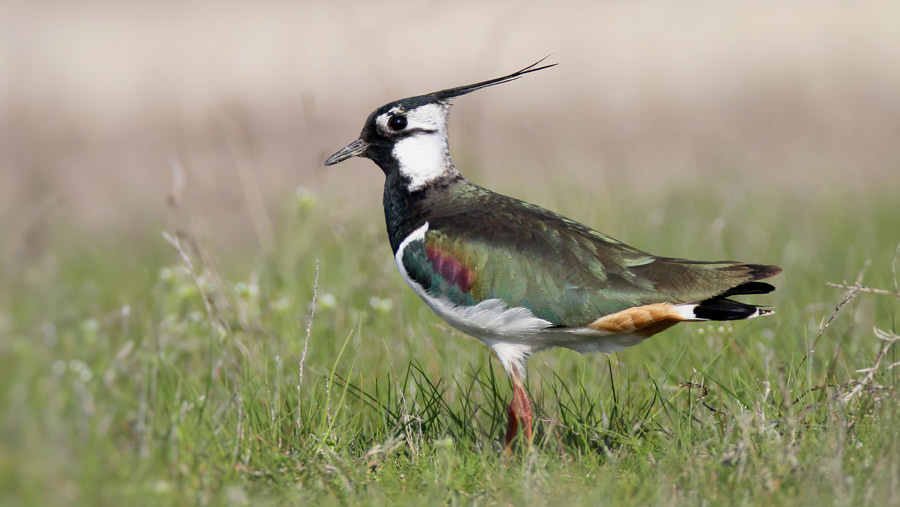RSPB research shows value of environment schemes
 Lapwing © Volodymyr Kucherenko/Adobe Stock
Lapwing © Volodymyr Kucherenko/Adobe Stock An RSPB study has revealed that farmland bird populations thrive under higher-tier agri-environment management systems when farmers devote at least 10% of their land to wildlife-friendly practices.
The study, which was funded by Natural England and backed by leading bird research charity BTO, recorded changes in numbers of farmland birds across farms within high- and low-tier agreements, as well as land without initiatives, over a 10-year period.
See also: Big Farmland Bird Count 2022 turnout praised
It looked at measures that promote a seed- and insect-rich habitat for winter foraging and feeding chicks, and creating optimal environments for ground-nesting birds.
RSPB conservation scientist and lead author Rob Hawkes said: “This is the first study to ask the question ‘how much nature-friendly farming is needed in the English landscape to recover our depleted farmland bird populations?’
“Agri-environment schemes can only help farmland birds recover if sufficient bird-friendly habitat is provided at both the farm and landscape scales. There needs to be better, more strategic thinking when agreeing these nature-friendly packages,” Dr Hawkes said.
Key findings showed that farms under higher-tier schemes dedicated an average of 11% of land to bird-friendly measures, which proved beneficial to more than half of the species studied. This compared with less than 4% of dedicated land seen in lower-tier schemes, which was enough to merely sustain farmland bird numbers.
Crucially, the study revealed that to improve priority bird populations by 10% over 10 years, the proportion of farmland placed into higher-tier agreements would need to be reconsidered.
This figure ranged from 26-31% across the monitored regions, but dropped to 17-21% when targeting higher-tier agreements to farms that already have higher numbers of farmland birds.
RSPB senior policy officer Alice Groom said: “This research has landed as governments from the four UK countries develop new agricultural policies to replace the EU’s Common Agricultural Policy.
“This provides a critical opportunity to design future agri-environment schemes that are effective and deployed at a sufficient scale to recover farmland wildlife.
“The Welsh government has proposed making the 10% farm-scale provision a universal element of the Sustainable Farming Scheme. In England, Defra has yet to set out how it will ensure the new Environmental Land Management scheme contributes to the legally binding targets to halt the loss of species abundance by 2030 and reverse it by 2042.”
